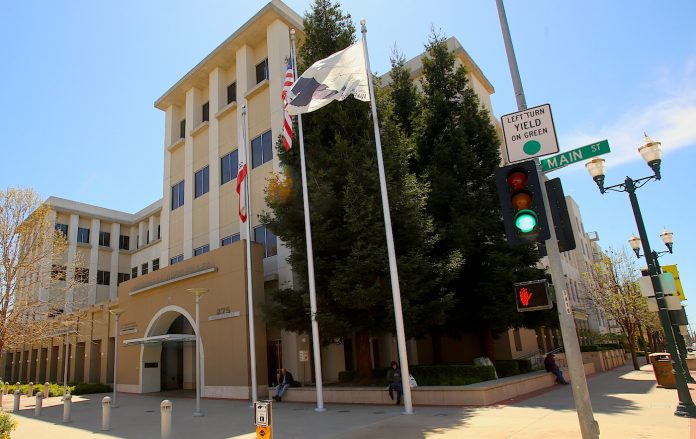WATSONVILLE—The City of Watsonville has asked all departments to trim their budgets by 10 percent to prepare for the economic slump over the next three years as a result of the coronavirus pandemic.
Finance Department Director Cindy Czerwin at Tuesday’s City Council meeting predicted Watsonville will face a budget deficit of roughly $5.7 million in the coming fiscal year. That hole could grow to as much as $8 million by the 2022-23 fiscal year, Czerwin said.
The 10 percent reduction might not be feasible during the first round of budget cuts, as roughly 80 percent of departments’ expenses are personnel, Czerwin said. Instead, the City plans to reach out to labor groups to rework deals and dip into its General Fund Balance and its $4.4 million emergency reserve balance to avoid layoffs and furloughs.
A budget will be presented to the City Council in June, and Czerwin said she will provide updates every quarter as the COVID-19 crisis begins to settle.
“I keep talking to departments and trying to make sure that we do this in a phased approach so that we’re making changes that we know we need to make,” Czerwin said. “We’re trying to be very measured and thoughtful and deliberate about the decisions we’re making.”
During the next fiscal year, the City is expected to lose roughly $2.5 million worth of sales tax, a shortfall of roughly 26 percent from its previously predicted intake. A large chunk of that loss will come from a decline of auto sales, which for the last few years has helped bolster Watsonville’s budget.
The rising unemployment numbers—about 19.3 percent in Santa Cruz County, according to City Manager Matt Huffaker—will also factor into that loss of revenue.
Property tax is expected to stay steady until the 2022 fiscal year, Czerwin said, but that could change if homeowners begin to lose their homes and business start to close in 2021.
Though both the federal and state governments have created safety nets for the homeowners and business operators, a slow economic rebound could mean mass foreclosures and an extended recession, Czerwin said.
“If we start seeing people really struggling, there’s a potential to have a more significant impact in 2022,” she said.












